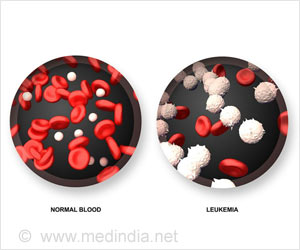Highlights
- Many obesity related diseases like cardiovascular conditions have been linked to certain epigenetic modifications of the DNA known as methylation.
- A new study finds strong associations between body-mass index and DNA methylation at many sites in the genome.
- The more the changes in the methylation, the greater the body-mass index and higher the risk of obesity and related metabolic conditions.
The study is one of the largest to date to examine the link between BMI, obesity-related disease and DNA methylation, which is a type of epigenetic modification that influences whether genes are turned on or off.
Obesity
Though preventable, obesity is highly prevalent in developed nations and contributes to a substantial burden of morbidity and mortality.
Obesity has more than doubled since 1980, globally. In 2014, more than 1.9 billion or 39% adults of age 18 years and older, were overweight. Among them, over 600 million or 13% were obese.
"Even though we've genetically sequenced more and more people at greater and greater breadth and depth, we haven't completely explained who develops obesity and why," says Michael Mendelson, MD, ScM, a pediatric cardiologist with the Preventive Cardiology Program at Boston Children's Hospital.
Understanding the Link
For the study, the researchers looked for markers of DNA methylation at more than 400,000 sites in the genome from blood samples from 7,800 adults from the Framingham Heart Study, the Lothian Birth Cohort and three other population studies.
They then checked if these markers differed according to BMI in a predictable pattern.
Their analysis revealed strong associations between BMI and DNA methylation at 83 locations in 62 different genes.
The differences in the expression of genes involved in energy balance and lipid metabolism was due to the methylation at these sites.
The more the changes in methylation, the greater their BMI.
A higher methylation score increased the odds ratio for obesity was 2.8 times higher.
Difference in methylation at one gene, SREBF1, appeared to be causative of obesity and was clearly linked with unhealthy blood lipid profiles, glycemic traits which is a risk factor for diabetes and coronary artery disease. This could be a new target for a drug treatment.
Conclusion
"Taken together, these results suggest that epigenetic modifications may help identify therapeutic targets to prevent or treat obesity-related disease in the population," says Mendelson, who is also a research fellow in the Population Sciences Branch of the NHLBI. "The next step is to understand how we can modify epigenetic modifications to prevent the development of cardiometabolic disease."
"We've known for a long time that people who are overweight or obese are more likely to develop metabolic risk factors like diabetes, lipid abnormalities and hypertension," adds study coauthor Daniel Levy, MD, the director of the Framingham Heart Study, which is supported by the NHLBI.
"This study may help us understand the molecular mechanism linking obesity to metabolic risk, and that knowledge may pave the way for new approaches to prevent even more dire complications such as cardiovascular disease." Levy added.
The findings were published online January 17 by PLoS Medicine.
References
- Obesity and overweight - (http://www.who.int/mediacentre/factsheets/fs311/en/)
- Michael M. Mendelson et al. Association of Body Mass Index with DNA Methylation and Gene Expression in Blood Cells and Relations to Cardiometabolic Disease: A Mendelian Randomization Approach. PLoS Medicine ; (2017) doi.org/10.1371/journal.pmed.1002215
Source-Medindia










